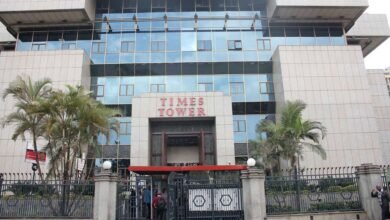
Kenyan landlords are the latest taxpayers in Kenya Revenue Authority’s (KRA) radar to come under scrutiny as it devises fresh strategies to tap more revenue after years of falling short of targets due to tax cheats.
The taxman is implementing a Geographical Information System (GIS) which will see new rental apartments captured in its system.
It is through this system that KRA will be able to identify rental building owners who are tax compliant or not by verifying various estates into blocks of flats.
“We will be targeting all existing landlords who are not tax compliant as well as those with upcoming buildings both residential and commercial,” said KRA.
Under Kenyan law, a landlord is required to pay rental income tax at a rate of 10 percent on the gross rent received either monthly, quarterly, semi-annually or annually, though the return must still be filed monthly.
This means that a landlord earning gross rent of Ksh.30,000 in a particular month is required to pay rental income tax at the rate of 10 percent which is Ksh.3,000 of Ksh.30,000 per month..
Every resident landlord receiving rent income of between Ksh.144,000 and Ksh.10 million per annum are obligated to file and pay for MRI (Monthly Rental Income), while those below or above this threshold file annual income tax returns and declare rental income together with income from other sources.
However, the Finance Act 2020 amended the minimum and maximum rental income thresholds of MRI increased from Ksh.10 million to Ksh.15 million per annum while the lower threshold increased from Ksh.144,000 to Ksh.288, 000 per annum in order to align with the current lower individual tax bands.
According to Business Daily, KRA is targeting to add over two million taxpayers in its system by mid 2024 when it aims to achieve a Ksh.6.83 trillion revenue target.
Landlords are latest revenue generators in KRA’s system to come under scrutiny, two months after it announced that it would be going after Kenyans who post lavish lifestyle on their social media pages yet file nil returns.
KRA already has a team focused on smoking out tax cheats through Facebook, Instagram and Snapchat.
Tax cheats risk travel bans, collection of duty directly from their suppliers and bankers, and prosecution in what is emerging to be the biggest crackdown yet on high-net-worth individuals.
Besides scouring social media sites, the Authority has been using bank statements, import records, motor vehicle registration details, Kenya Power records, water bills and data from the Kenya Civil Aviation Authority, which reveal individuals who own assets such as helicopters.





